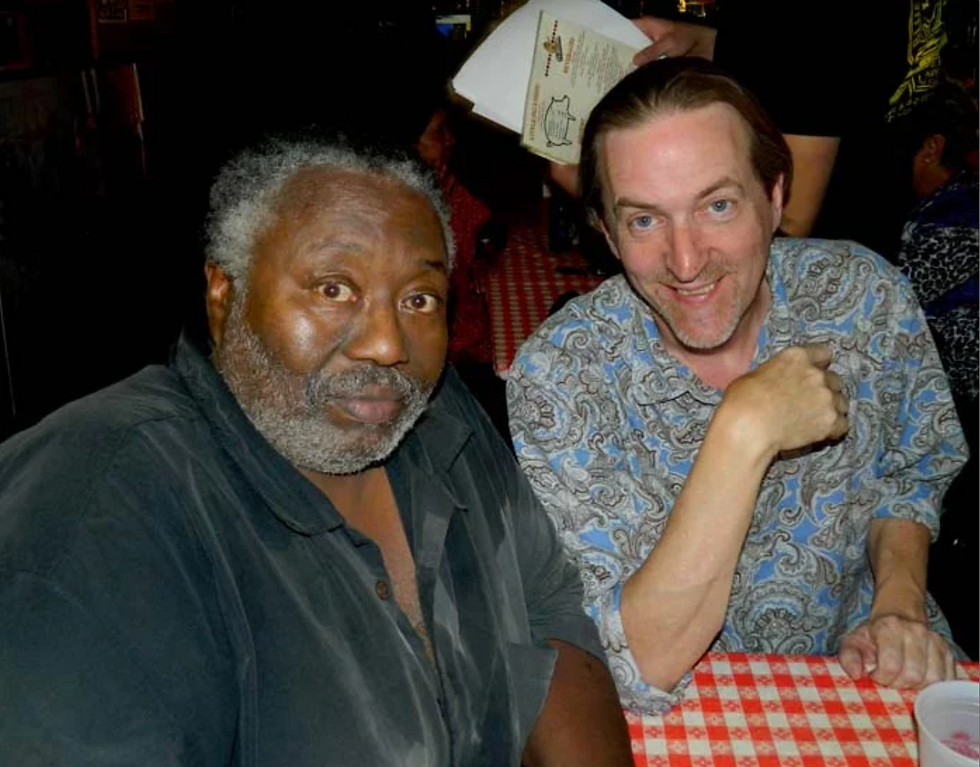I met Roland Allen at the Saturday Afternoon Jam at Harling's. I thought he was an interesting guitarist/singer – very soulful. He expressed admiration for my playing and we kind of hit it off.

We would cross paths over the years, mainly at the Jam. He would come in and play whenever he was in town. I got the idea he was kind of an itinerant bluesman – gigging from town to town and using local players as backing musicians in whatever town he happened to be working at the time.
At one point a few years ago he began to rent an amplifier from me whenever he had a gig in town. He liked my JC-120 – a ROLAND JC 120 (ha!) - and since I have 3 of them it was no big deal to let him have one.
He would call me up, give me the date, show up at the house in an old, beat-up car, pick up the amp and then bring it back the next day with a twenty-dollar bill.
These visits to my house resulted in some very interesting conversations wherein it became clear that there was more to this man than met the eye – much more.
Besides that, my wife liked him.
We had some very direct and honest exchanges on race, religion, music, philosophy and history. Especially history. Turns out the man had a masters in history. He was a very educated man. Why he chose the life of an itinerant musician over a more secure academic career – well...I can relate to that (see, Staying Sane in the Music Business).
During the course of our conversations, he became very excited about the fact that,
1) I'm Irish, and,
2) I have some black ancestry.
He was especially excited when I showed him a photo of my great-great-great grandparents, Jonathan and Catherine Hinkle, and related what I knew of the history.

Jonathan came to Monroe County, Indiana (which is where I'm from) from North Carolina in the 1820's, apparently a free black man before the Civil War.
My great-aunts called him “Black Jon” and wouldn't talk about him.
His son married a Cherokee – it may be that Catherine was a Cherokee, her ethnicity is unclear from the photo. It would make sense, there are Cherokee in North Carolina to this day and Roland said intermarriage between Blacks and Native Americans was common. I knew Jonathan's granddaughter, my great grandmother – she died when I was 8 or 9 years old.
Roland said this picture was a rare thing because it showed Jonathan's wife. He was very excited to see it. He said,
“There is a history of Irish slave owners in North Carolina freeing their slaves before the Civil War.”
He also said,
“I'm not surprised that you're Irish. In my experience, Irish musicians tend to have more Soul than other white musicians. That's because the Irish are genetically closer to certain African tribes than they are to Europeans.”
I was like, “What the hell are you talking about? Where do you get this stuff?”
Roland said, “Oh, it's well-documented. It's just not commonly taught.”
He gave me a list of authors and books and thus opened my eyes (at least a little bit) to an Afrocentric perspective on history, as well as African history that is not common knowledge in white culture.
Roland passed away on August 5, 2017.
He had his own troubles and issues (don't we all) but was a gentle and deep soul; I'm grateful to have known him and perhaps we shall meet again.



Sign up as a Master Guitar School site member - it's free! - and get access to dozens of free site-based lessons, a monthly newsletter that contains a brand-new free lesson, and DEEP discounts on lesson series downloads - plus more!
For more information on site membership see Why Become a Site Member?

Comments